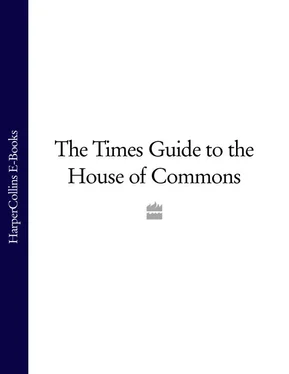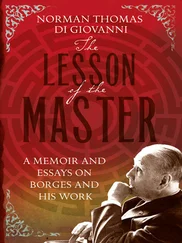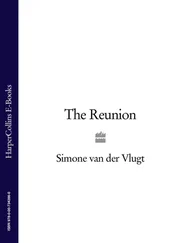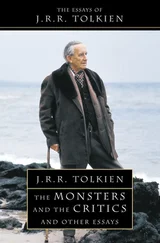| Tami, MarkAlyn & Deeside |
Lab |
| Tapsell, Sir PeterLouth & Horncastle |
C |
| Teather, SarahBrent Central |
LD |
| Thomas, GarethHarrow West |
Lab |
| Thornberry, EmilyIslington South & Finsbury |
Lab |
| Thurso, JohnCaithness, Sutherland & Easter Ross |
LD |
| Timms, StephenEast Ham |
Lab |
| Timpson, EdwardCrewe & Nantwich |
C |
| Tomlinson, JustinSwindon North |
C |
| Tredinnick, DavidBosworth |
C |
| Trickett, JonHemsworth |
Lab |
| Truss, ElizabethNorfolk South West |
C |
| Turner, KarlHull East |
Lab |
| Turner, AndrewIsle of Wight |
C |
| Twigg, DerekHalton |
Lab |
| Twigg, StephenLiverpool West Derby |
Lab |
| Tyrie, AndrewChichester |
C |
| Umunna, ChukaStreatham |
Lab |
| Uppal, PaulWolverhampton South West |
C |
| Vaizey, EdWantage |
C |
| Vara, ShaileshCambridgeshire North West |
C |
| Vaz, KeithLeicester East |
Lab |
| Vaz, ValerieWalsall South |
Lab |
| Vickers, MartinCleethorpes |
C |
| Villiers, TheresaChipping Barnet |
C |
| Walker, CharlesBroxbourne |
C |
| Walker, RobinWorcester |
C |
| Wallace, BenWyre & Preston North |
C |
| Walley, JoanStoke-on-Trent North |
Lab |
| Walter, BobDorset North |
C |
| Ward, DavidBradford East |
LD |
| Watkinson, AngelaHornchurch & Upminster |
C |
| Watson, TomWest Bromwich East |
Lab |
| Watts, DaveSt Helens North |
Lab |
| Weatherley, MikeHove |
C |
| Webb, SteveThornbury & Yate |
LD |
| Weir, MikeAngus |
SNP |
| Wharton, JamesStockton South |
C |
| Wheeler, HeatherDerbyshire South |
C |
| White, ChrisWarwick & Leamington |
C |
| Whiteford, EilidhBanff & Buchan |
SNP |
| Whitehead, AlanSouthampton Test |
Lab |
| Whittaker, CraigCalder Valley |
C |
| Whittingdale, JohnMaldon |
C |
| Wicks, MalcolmCroydon North |
Lab |
| Wiggin, BillHerefordshire North |
C |
| Willetts, DavidHavant |
C |
| Williams, HywelArfon |
PC |
| Williams, RogerBrecon & Radnorshire |
LD |
| Williams, StephenBristol West |
LD |
| Williams, MarkCeredigion |
LD |
| Williamson, ChrisDerby North |
Lab |
| Williamson, GavinStaffordshire South |
C |
| Willott, JennyCardiff Central |
LD |
| Wilson, SammyAntrim East |
DUP |
| Wilson, RobReading East |
C |
| Wilson, PhilSedgefield |
Lab |
| Winnick, DavidWalsall North |
Lab |
| Winterton, RosieDoncaster Central |
Lab |
| Wishart, PetePerth & Perthshire North |
SNP |
| Wollaston, Dr SarahTotnes |
C |
| Wood, MikeBatley & Spen |
Lab |
| Woodcock, JohnBarrow & Furness |
Lab |
| Woodward, ShaunSt Helens South & Whiston |
Lab |
| Woolas, PhilOldham East & Saddleworth |
Lab |
| Wright, IainHartlepool |
Lab |
| Wright, JeremyKenilworth & Southam |
C |
| Wright, SimonNorwich South |
LD |
| Wright, DavidTelford |
Lab |
| Yeo, TimSuffolk South |
C |
| Young, Sir GeorgeHampshire North West |
C |
| Zahawi, NadhimStratford-on-Avon |
C |
The new Parliament
An ordinary beginning to an extraordinary campaign
Roland Watson
Political Editor
After asking the Queen to dissolve Parliament, Gordon Brown returned from Buckingham Palace to Downing Street and declared: “I come from an ordinary family in an ordinary town.” As the opening line of the 2010 general election, it was designed to draw attention to the privileged background of his Eton-educated Conservative rival, David Cameron. It ill served as a guide for what followed, though, which was, by any standards of modern British political history, extraordinary.
None of the three leaders had led their parties into a general election and each faced a monumental task. Mr Brown was seeking an historic fourth term for Labour against the backdrop of the deepest recession for 60 years. He was also looking to overcome the memory of the election-that-never-was in October 2007 when, five months after inheriting the job from Tony Blair and revving up Labour’s campaign machine, he ducked out of going to the country at the last moment.
Mr Cameron needed to achieve the biggest swing since the war to gain the 116 seats required for a Commons majority. His party had endured a jittery few months in which questions about its economic policy and a tightening in the polls fed off each other to spread deep unease through Tory ranks. He was beginning the campaign with a seven-point lead, well down from the double digits the Tories had enjoyed for most of the past year and not enough for an outright win.
Nick Clegg, the Liberal Democrat leader, needed to capitalise on the prospects of a hung Parliament. He also had the first televised debates between the leaders to look forward to. They would offer him a stage never before enjoyed by his predecessors: equal prime-time billing with his two rivals. Initially, though, the campaign conformed to type, focusing on the two established parties. Mr Cameron pre-empted Mr Brown’s return from the Palace to stage a rally on the south bank of the Thames, across from Westminster. Waving his finger at the Houses of Parliament, he vowed to “make people feel proud again of that building over there”. He was, he said, campaigning for “the Great Ignored”, a group that encompassed black, white, rich, poor, town and country folk. It was a slogan he ignored for the rest of the campaign.
Читать дальше












